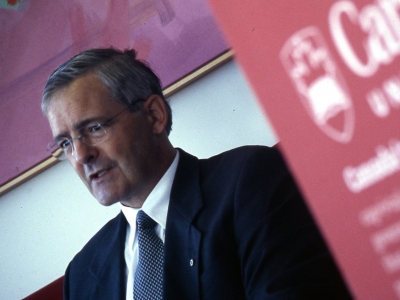Carleton University’s Marie Curie Global Fellow Dominique Roche has co-authored a paper on the barriers researchers face to publicly sharing their data, an issue that has gained prominence during the COVID-19 pandemic. The article, Reported Individual Costs and Benefits of Sharing Open Data among Canadian Academic Faculty in Ecology and Evolution, was published in the journal BioScience.
“The COVID-19 pandemic has made people from all over the world grasp the importance of sharing research data to speed up scientific discoveries,” said Roche. “Clearly, open data have been key in fighting the pandemic, but they’re also really important to tackle other urgent problems, like climate change and biodiversity loss.”
Roche and co-author Sandrine Soeharjono, who did this work while doing her Masters in Quantitative and Computational Biology at Université de Montréal, surveyed academics in Canada and asked about individual costs and benefits of sharing open data.
It seems everyone agrees that data sharing is good for science and society, but many researchers don’t want to share this information because they fear the personal costs in terms of career advancement. Roche’s previous work has shown that there are many barriers to scientists sharing their data and that those who do share often do not do it well. These barriers include fear of others misusing the data, scooping discoveries, privacy issues, not receiving credit for their work and the risk of shaming for data that is taken out of context.
“I was excited to work on this project because I believe that scientific data should be open-access in order for society to reap the full benefits of academic research,” said Soeharjono. “We are social creatures after all, and should aspire to thrive from collaboration instead of competition. I am glad to see that many researchers are on-board. If this kind of study can prompt a single conversation about the movement, I consider that a step forward.”
Roche and Soeharjono suggest several solutions to overcoming the hesitancy to sharing open data. These solutions include creating better guidelines, standards and training for data sharing, providing greater support for research data management and equity in sharing practices, and providing better incentives for sharing and better protection from potential negative outcomes.
“Some researchers are really worried about sharing their data and our results are exciting because they suggest that these fears are largely unwarranted,” said Roche. “Ninety percent of researchers answered that sharing their data had led to beneficial or neutral outcomes, with only one in five saying they had experienced some form of cost. Our hope is that our results will encourage researchers to continue sharing their data even after the pandemic is over.”
Media Contact
Steven Reid
Media Relations Officer
Carleton University
613-265-6613
Steven.Reid3@carleton.ca
Follow us on Twitter: www.twitter.com/Cunewsroom
COVID 19 Updates: https://newsroom.carleton.ca/coronavirus-covid-19/messages/
Wednesday, April 21, 2021 in News Releases
Share: Twitter, Facebook



